"Midterm Exam" of 2024: Almost "0" Success Rate for Car Manufacturers in Mid-Year Sales Targets
![]() 07/08 2024
07/08 2024
![]() 620
620
The automotive consumption market has almost reached its peak.
With the arrival of Minor Heat in July, 2024 has quietly passed half its year. At the beginning of this year, car manufacturers were still full of ambition in setting annual sales targets. However, after half a year of price wars, the recently released mid-year data has left most car manufacturers speechless.
Judging from the results, only Chery barely managed to meet its planned target, and almost all Chinese automakers overestimated themselves.

After China's new car sales officially exceeded 30 million units last year, the process of "the incremental market shifting to the stock market" predicted by experts has basically come to an end, and the automotive consumption market has almost reached its maximum.
BYD, Stuck at the Sales Peak
After successfully blazing a trail in the new energy sector with plug-in hybrids, BYD has solidified its position as the sales champion of Chinese automakers. In the first half of this year, BYD's cumulative sales exceeded 1.61 million units, representing a year-on-year increase of 28.46%.
Although the growth rate has slowed down, BYD still maintained double-digit year-on-year growth. At the beginning of this year, relying on its strong sales momentum and cost advantages, BYD took the lead in initiating a new round of price wars. Not only did it shout the slogan "electricity is cheaper than oil," but it also launched two plug-in hybrid models, the Qin PLUS Glory Edition and the Destroyer 05 Glory Edition. Both models have a starting price of 79,800 yuan, a 20,000 yuan reduction compared to the previous Champion Edition.
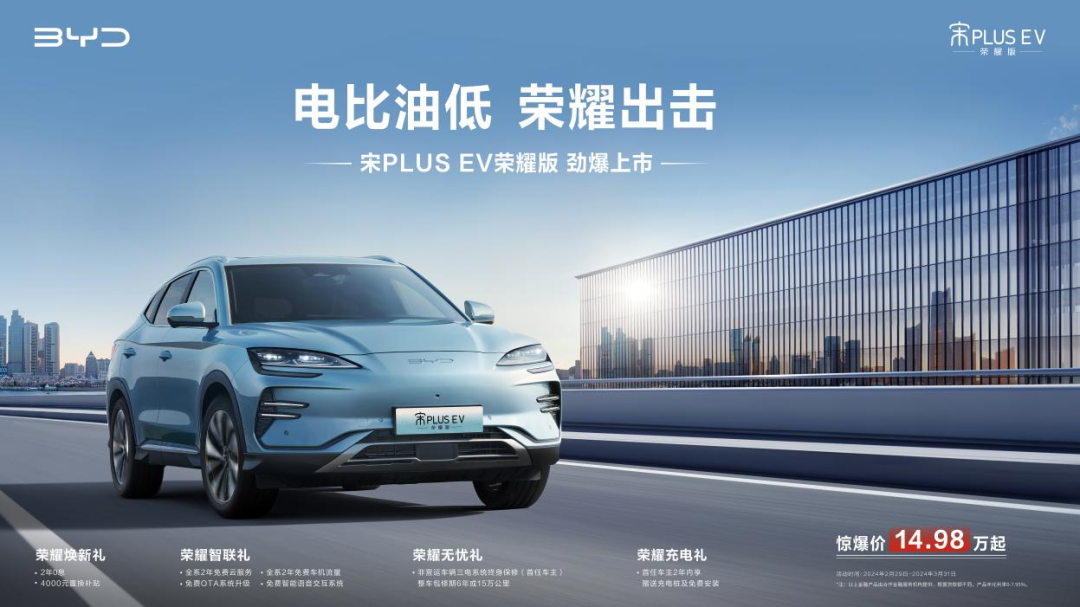
Just the BYD Qin PLUS DM-i model alone sold 154,727 new vehicles in the first half of this year, surpassing the half-year or even annual sales of many automakers.
Prior to this, BYD set its annual sales target for this year at an increase of at least 20% based on 2023's 3.02 million units, which means a sales target of at least 3.624 million units for 2024. Based on this calculation, BYD has only completed 44.6% of its annual target so far.
Compared with last year's full-year sales, most of BYD's sales occurred in the second half, which is also the current situation for most automakers. The peak shopping season of "Golden September and Silver October" and the year-end sales rush contributed significantly to sales. However, BYD has already resorted to price wars in the first half of this year, indicating that they may not be able to wait until then, or perhaps they have even stronger measures planned for the second half of the year to seize market share.
In fact, the lack of specific figures already reflects BYD's pessimism about this year's consumer market. Similarly, Chery also expressed consistent concerns when setting its annual sales target.
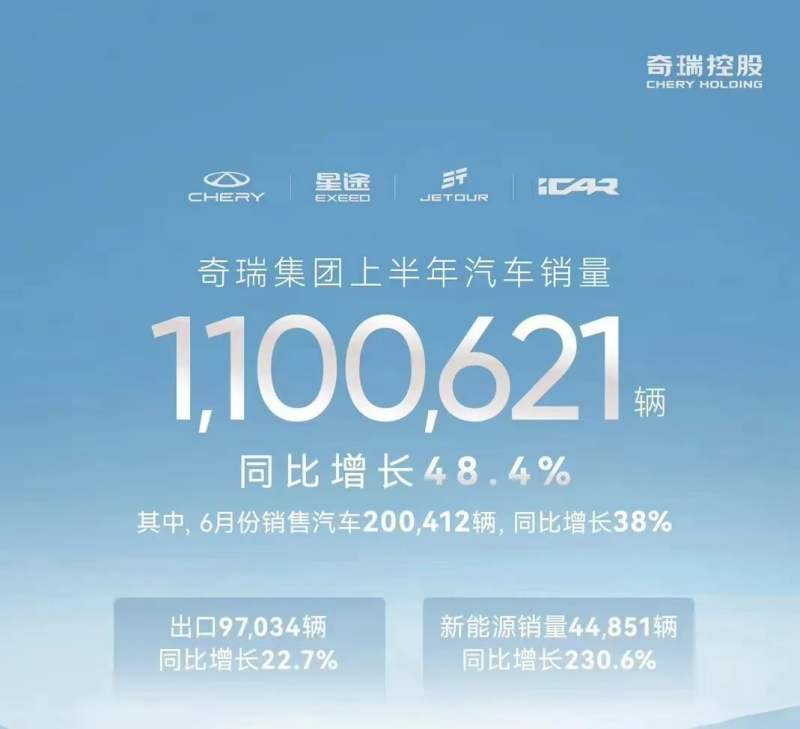
At the beginning of this year, Chery set its annual target as "exceeding the industry's sales growth rate by 10-20 percentage points." Previously, Chen Shihua, Deputy Secretary-General of the China Association of Automobile Manufacturers, predicted that China's total auto sales growth rate would be above 3% in 2024. If only based on this estimate, Chery's sales growth would be around 13% compared to 2023, which is also a conservative sales target that allowed Chery to become the only automaker to truly complete half of its sales target in half a year.
From January to June, Chery completed new car sales of 110,621 units, making it the only automaker besides BYD to achieve the feat of selling one million vehicles in half a year. If compared with last year's sales, Chery's most conservative annual sales target is 2.126 million units, and it has now achieved 51.77%.
It is worth noting that half of these more than one million new car sales were achieved in overseas markets. In the first half of the year, cumulative exports exceeded 532,000 vehicles, with the domestic and overseas markets almost splitting the difference.
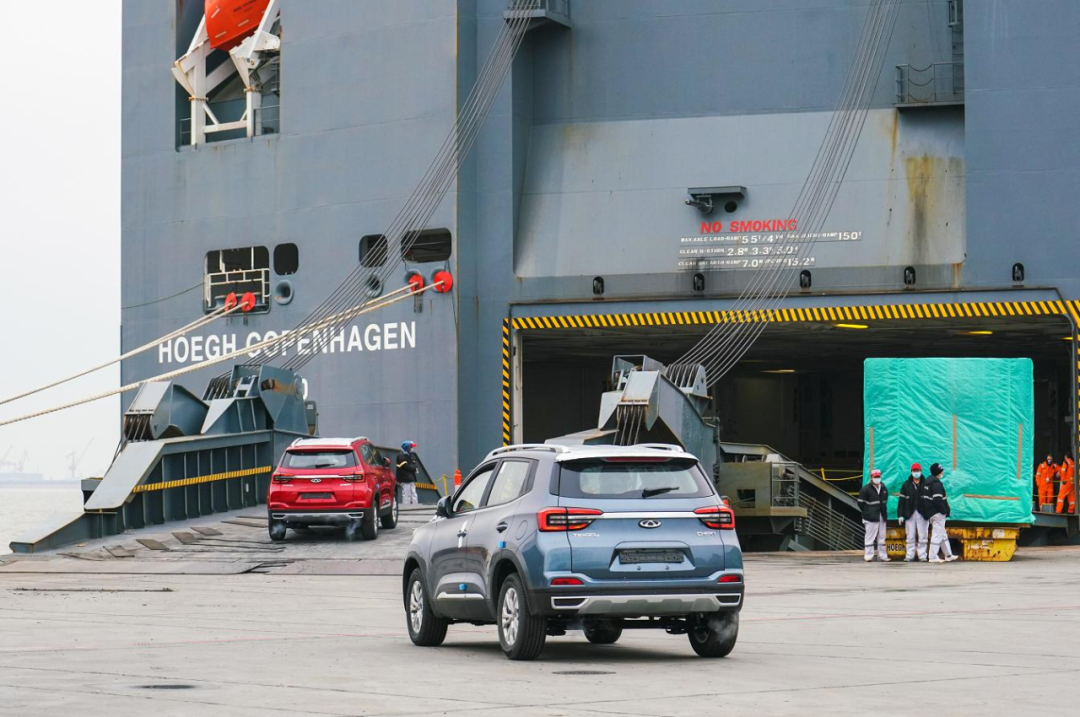
In the past few years, Chery, as an established domestic company, has been in a mediocre position in the domestic market landscape, with Chang'an, Geely, and Great Wall all occupying the sales champion position at some point. However, starting last year, Chery's quiet changes have surprised everyone. Although not as dazzling as BYD's rise, it has still surpassed Chang'an, Geely, and Great Wall.
From the sales structure, Chery's overseas sales are an important source of incremental sales, supporting Chery to reach the second position among Chinese automakers. This is also a visible path that other automakers can learn from.
If Chery has a strong overseas foundation, coupled with BYD's ability to create bestsellers, its future is unlimited.
Great Wall Waiting for Tomorrow
In the first half of this year, in addition to the protracted price wars, executives going live was also a major highlight.
On March 26, Wei Jianjun suddenly updated his Weibo account, which had been inactive for 13 years. Not only that, but he also made numerous new attempts, including live streaming, short videos, and more. He interacted with Lei Jun multiple times and frequently communicated with users online. For a time, the nickname "Baoding Car God" spread across the internet.
Holding shareholder meetings live, assisting in intelligent driving live, and exploring offline stores live, this 60-year-old "veteran" of the automotive industry has appeared online and gained attention in the past two to three months almost more than the sum of his previous appearances. Among all traditional automakers, he is the most successful in creating a "celebrity" persona.
Unfortunately, the hype was louder than the actual results, and Great Wall's voice did not translate into sales as expected.

In the first half of the year, Great Wall Motor's cumulative sales reached 559,700 units, representing a year-on-year increase of nearly 8%. Based on Great Wall's annual target of 1.9 million units, the achievement rate is 29.45%. It can be said that among the major traditional independent brands, Great Wall is currently in the most difficult situation.
Among the five major brands under Great Wall, only Haval's sales reached 299,000 units, while WEY and Ora's contributions to the group's sales are becoming increasingly smaller.
So far, Great Wall's Haval brand has 5 PHEV models, while all 7 models under the Wey brand are PHEV models. Among the 6 models of Tank, 4 are PHEV models. Among the 16 hybrid models, the best-selling model in the first half of this year was Tank 400. It has to be said that while traditional companies rely on new energy to turn around, Great Wall has not tasted the sweetness in this field.

As long-time rivals, Geely has instead relied on new energy to stabilize its position. It is worth noting that Geely is also the most low-key among the automakers who have transformed into internet celebrities in this wave.
Geely's cumulative sales in the first half of the year reached 955,700 units, representing a significant year-on-year increase of 41%. Like Great Wall, Geely also set its sales target at 1.9 million units at the beginning of this year. However, while other automakers have lowered their sales targets, Geely bucked the trend and increased its annual KPI by 5 percentage points, expecting to reach 2 million units.
Based on this calculation, Geely's completion rate is only 47.79%, failing to reach half. In addition to its annual sales target, Geely also plans to achieve a 40% penetration rate in new energy, roughly targeting 800,000 units, representing a year-on-year increase of 66%. Judging from the current situation, Geely faces considerable pressure in achieving this target.
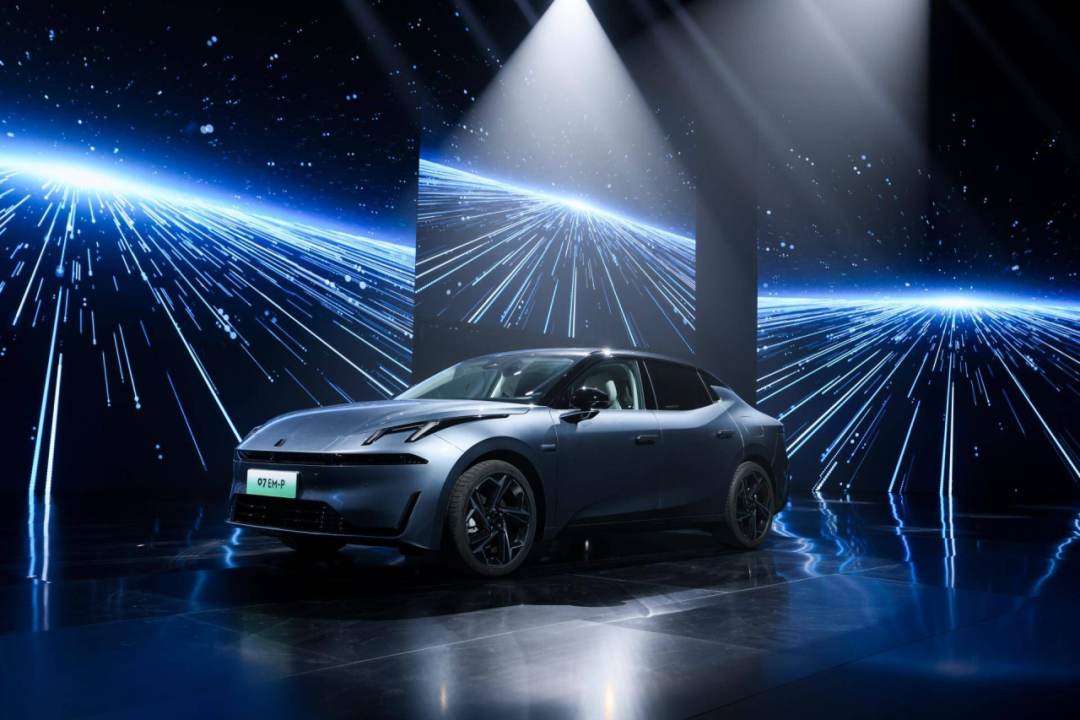
In the first six months of this year, Geely's total new energy sales reached 320,000 units, representing a year-on-year increase of 117%, of which the Zeekr brand delivered a cumulative of 87,870 units. Following its overseas launch, Lynk & Co. will also begin to focus on new energy. In addition to the Lynk & Co. 07 EM-P, the Lynk & Co. Z10 will also be launched in the second half of the year.
As a former sales champion, Changan's (independent brand passenger cars) pace has slowed down in the past two years. It achieved new car sales of 822,000 units in the first half of this year, representing a year-on-year increase of 7.0%, making it the slowest among the five major traditional automakers.
In the field of new energy, Changan also has the broadest layout. In addition to adding plug-in hybrids to its existing models, Changan also has three major new energy brands. In the first half of this year, Changan Qiyuan delivered 72,968 new vehicles, Shenlan delivered 83,858, and the high-end luxury brand AVATR delivered 29,030.
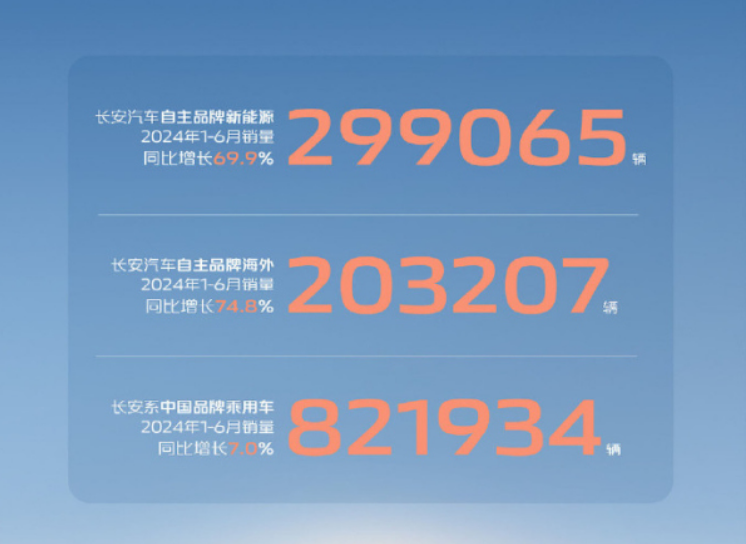
Although not as deep as Geely's efforts, Changan's situation is still much better than Great Wall's, even in terms of the executives' live streaming. Zhu Ronghua, Changan's chairman, is neither as internet-famous as Wei Jianjun nor as low-key as Li Shufu. At least he has done his job well, focusing on stability.
However, from a full-year perspective, Changan's ambitions are not small. It aims to achieve sales of 2.204 million units in the independent segment, 750,000 units in new energy, and 480,000 units in overseas sales in 2024. In the first half of this year alone, the target completion rates for all segments have not reached half.
Whether it's BYD, which is far ahead, Chery, which has quietly prospered, or Chang'an, Great Wall, and Geely, each with its own strengths, they have all exerted their utmost efforts in such a competitive market in the first half of this year. The upcoming second half will be even more brutal and fierce.
Note: Some images are sourced from the internet. If there is any infringement, please contact us for removal.






